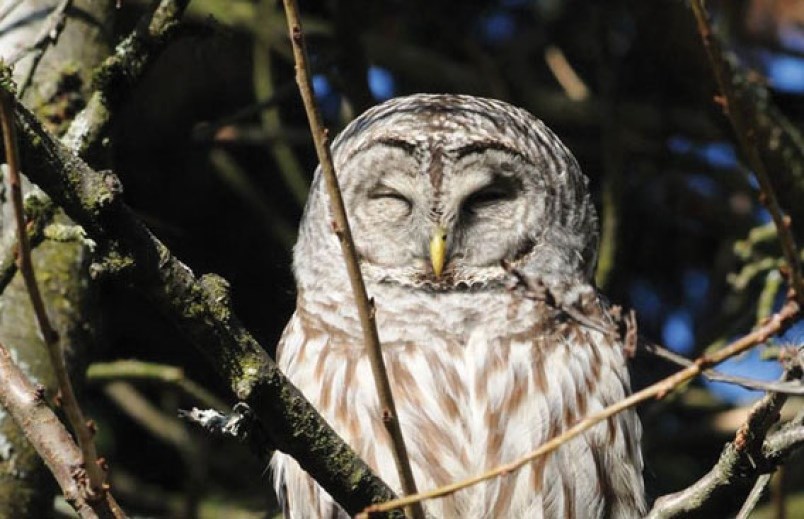Dear Editor:
Re: Owls Fall Prey to Poison in North Van, Dec. 20 front-page story.
I was concerned to read of owls falling prey to poison and have some information to add. In early December, a barred owl was seen several times over a few weeks in and around my property in the Whytecliff area of West Vancouver. He would perch on my gatepost, on the fence, and swoop down along the side yard. While thrilled to see such a magnificent animal so close, I was also disturbed as he seemed too tame and docile for a wild bird.
I remembered a month or two earlier a representative from a pest control company was canvassing in our neighbourhood to sell bait traps for various pests, including rats. Apparently other neighbours had signed on, and he tried to convince me (unsuccessfully) that I, too, would benefit from the service.
Fast forward to early December and my owl encounters, and I put a call into the local owl rehab centre, who confirmed my suspicion that baited rats can be toxic to the birds that prey on them. The rats who ingest the poison take a few days to die and become easy prey for unsuspecting birds, who then in turn become poisoned and can die. Needless to say, my owl friend has not been seen for over a month, and my worst fear is that he fell victim to this tragic scenario.
Other animals such as domestic cats can also be at risk. And ironically, putting poison bait out for rats actually increases rats in the area as it is an attractant and will draw them to the food source. The best long-term solution to keep rats away is to minimize food and attractants, and let their natural predators do their jobs.
Lisa Brasso
West Vancouver
What are your thoughts? Send us a letter via email by clicking here or post a comment below.



